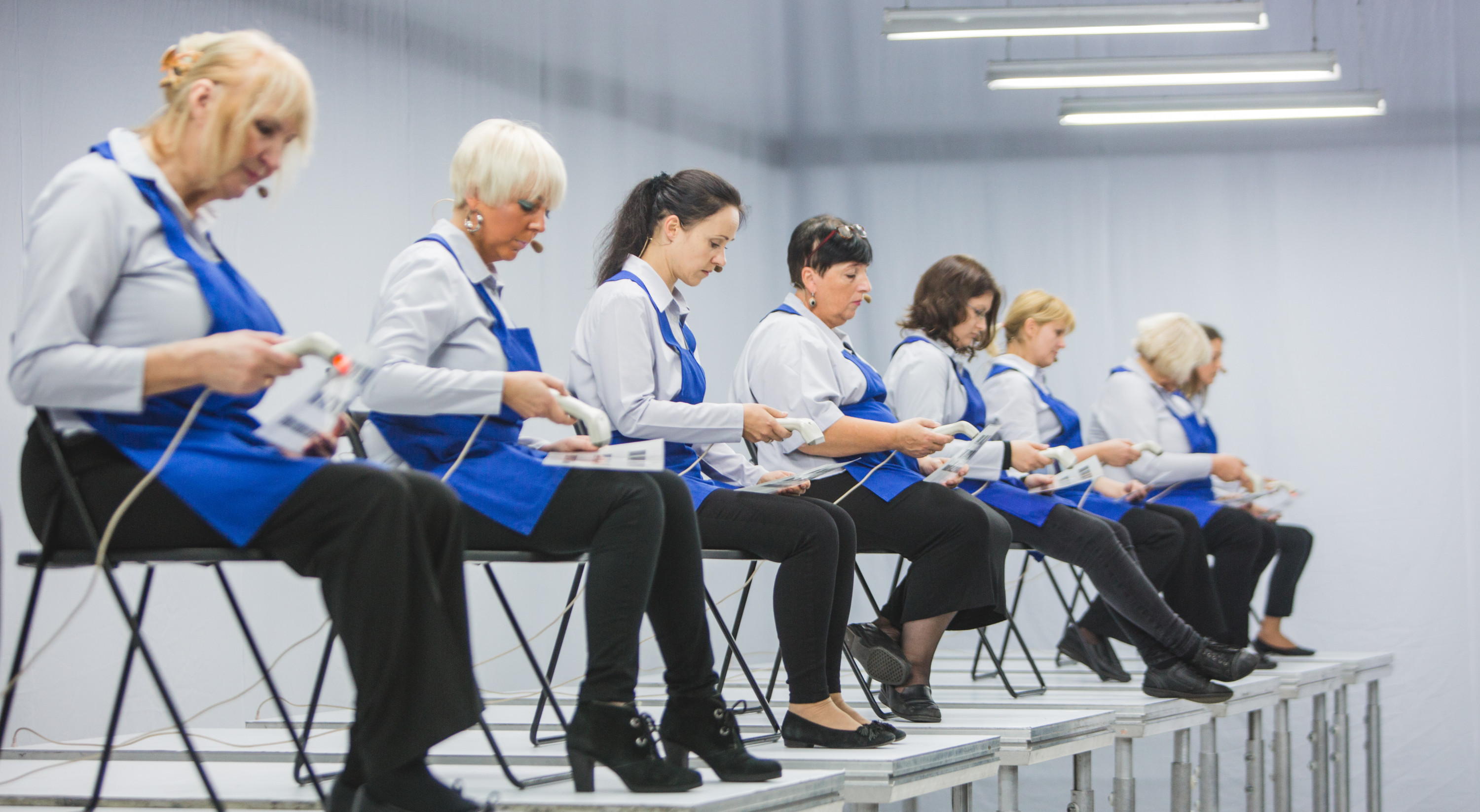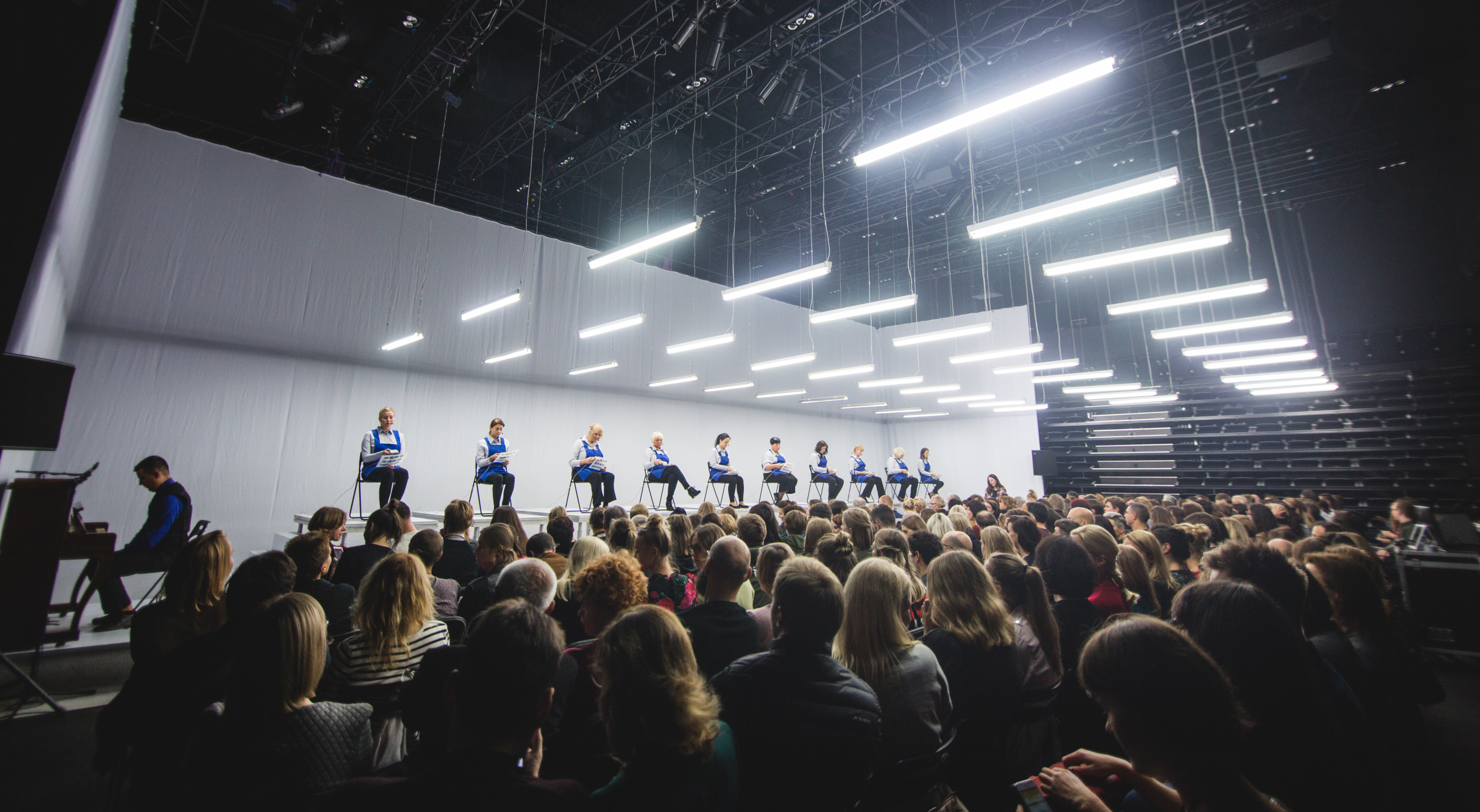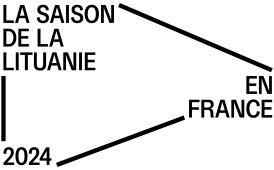Vaiva Grainytė, Lina Lapelytė, Rugilė Barzdžiukaitė
Have a Good Day!
octoberoct 22 – 24
Concept Vaiva Grainytė, Lina Lapelytė, Rugilė Barzdžiukaitė. Libretto by Vaiva Grainytė. Composer and music director Lina Lapelytė. Director and set designer Rugilė Barzdžiukaitė. Cashiers Indrė Anankaitė-Kalašnikovienė, Liucina Blaževič, Vida Valuckienė, Veronika Čičinskaitė-Golovanova, Lina Valionienė, Rima Šovienė, Erika Viselgė, Rita Račiūnienė, Svetlana Bagdonaitė, Kristina Svolkinaitė. Security Kęstutis Pavalkis (piano). Lighting designer Eugenijus Sabaliauskas. Costume designer Daiva Samajauskaitė. Sound engineer Arūnas Zujus.
Production Operomanija
With the support of the Fondation d’entreprise Hermès
Organised as part of the Lithuanian Season in France 2024
The Théâtre du Rond-Point and the Festival d'Automne à Paris are presenting this show in co-realisation.
Have a good day! arises from the collaboration of Vaiva Grainytė, Lina Lapelytė, and Rugilė Barzdžiukaitė. The three artists turn their focus toward the inner lives of cashiers in a shopping centre. “Good afternoon!”, “Thank you!”, “Have a good day!” : this opera examines what lies behind mechanical statements and their associated perfunctory gestures.
By placing attention onto the hidden thoughts and biographies of cashiers, Have a good day! questions the predominant social landscape in which service workers are reduced to mere stereotypes. Intimate elements are transformed into short, personal dramas upon which the opera’s libretto is written, piecing together a mosaic of vernacular and literary language. The atmosphere of the supermarket is conveyed through a glimmering and buzzing installation of lamps and sounds, fostering contact between the ten cashiers on stage and the audience. The set is minimalist, stripped of the profusion of goods that constitute a shopping centre’s familiar décor. Instead, in the opera, consumables are merely manifested by a landscape of sounds and words. The monotonous beeping of items stands as the opera’s acoustic leitmotif, waxing and waning throughout the performance, always present. Cashiers join the relentless sound in song, though their melodies are just as tedious, reflecting the seemingly endless processes of shopping and selling. The opera’s critical attitude towards capitalism is expressed through humour, irony, and poetry. The chorus of cashiers suggests a poem on the pleasures and pains of consumption, throughout which the characters’ innermost thoughts and feelings surreptitiously insinuate themselves.
Interview with Lina Lapelytė



